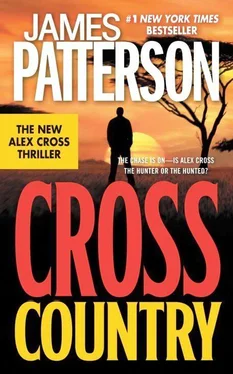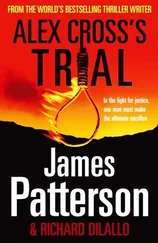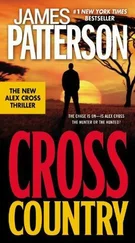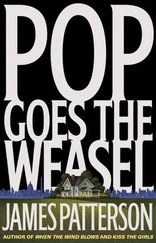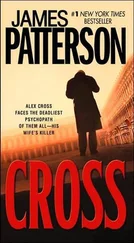“Stupid question,” said Mirror Shades.
To demonstrate, the second cop walked up and drove his fist into my stomach. My wind was gone, even before I hit the floor like a dry sack.
“Get him up!”
Mirror Shades hoisted me easily, then put his powerful arms around my shoulders from behind. When the next punch came, he kept me from falling over, and also made sure my body absorbed the full impact. I vomited immediately, a little surprised there was anything to bring up.
“I have money,” I said, trying what had worked before in this country, back at Immigration.
The lead cop was huge – as tall as Sampson, with a flopping Idi Amin belly. He looked down the slope of his body right into my eyes. “Let’s see what you have.”
“Not here,” I said. Flaherty, my CIA contact, had supposedly set up a money fund for me in a Lagos bank, which at this point was the equivalent of a million miles away. “But I can get it–”
The lead cop crashed his elbow into my jaw. Then came another wrecking ball of a punch to my chest. Suddenly I couldn’t breathe.
He stepped back and waved Mirror Shades out of the way. With an agility I wouldn’t have guessed at, the large, fat man kicked high with one boot and caught me square in the chest again. All the air remaining went out of me. I felt as if I’d just been crushed.
I heard, rather than saw, the two guards leave the room. That was it. They left me lying on the floor; no interrogation, no demands, no explanations.
No hope?
BACK IN THE holding cell, I was given a bowl of cassava and a cup of water, only a few ounces, though. I bolted the water but found I couldn’t eat the cassava, which is an important vegetable throughout Africa. My throat closed when I tried to swallow solid food.
A young prisoner hovered nearby and was staring at me. With my back to the wall, I whispered barely loud enough for him to hear, “You want it?” I held out the bowl.
“We hail the cassava, the great cassava,” he wheezed as he took the bowl. “It’s from a famous poem we learn in school.”
He scrabbled over and sat next to me, both of us watching the door for guards.
“What’s your name?” I asked.
“Sunday, sir.”
He couldn’t have been more than twenty, if that. His clothes were dirty but seemed middle-class to me, and he had a three-stripe tribal scar on each cheek.
“Here, Sunday. You’d better not be seen talking to me, though.”
“Oh, fuck them,” he said. “What can they do – throw me in a prison cell?”
He ate the cassava quickly, looking around like he expected someone to take it away from him. Or to rush in and beat him.
“How long have you been here?” I asked when he had finished eating.
“I come here ten days ago. Maybe it’s eleven now. Everyone here is new prisoner, waiting for processing.”
This was news.
“Processing? To where?”
“To the maximum-security unit. Somewhere in the country. Or maybe it will be worse. We don’t know. Maybe we all goin’ to a big ditch.”
“How long does it take? The processing. Whatever happens here?”
He looked at the floor and shrugged. “Maybe ten days. Unless you have egunje.”
“Egunje?”
“Dash. Money for the guards. Or maybe someone knows you’re here?” I shook my head no on both counts. “Then you have big wahala, sir. Same as me. You don’t exist. Shhhh. Guard is coming.”
WHEN THE GUARDS woke me on the third morning, they had to drag me to my feet. I wasn’t going with them willingly. Not to my own execution. My chest still ached from the beating the day before. And my nose felt seriously infected.
This time, it was a left turn out of the cell. I didn’t know if that meant good news or that the bad news had just gotten a lot worse.
I followed the human grasshopper down a steep, stone stairwell, through another corridor, and around several more turns that had me thinking I never would have gotten out of this place on my own.
We finally came outside into an enclosed quad. It was just a wide expanse of sun-bleached earth with a few tufts of weeds and a ten-foot-high fence topped with ribbons of barbed wire. If this was the exercise yard, it was a sad excuse for one.
Anyway, I could barely see anything in the bright light. And it was hot, at least a hundred degrees, give or take ten or twenty.
The guard didn’t stop until he got to the high razor-wire-topped gate on the far side.
A locked door was opened to a passage through a building, through another door, then a gate, and to what looked like a parking area in the distance.
I asked Grasshopper Man what was going on. He didn’t answer. He just opened the door and let me through.
He closed it behind me, locking me into yet another passageway.
“It’s been taken care of,” he said.
“What has?”
“You have.”
He was already walking back the way we’d come, leaving me there. My heart sped up and my body tensed hard. This sure felt like an ending, one way or the other.
Suddenly a door opened on my right. Another guard stuck his head out. He gestured at me impatiently.
“Get in, get in!”
When I hesitated, he reached out and pulled me by the arm. “Are you deaf? Or are you stupid? Get inside.”
The room I entered was air-conditioned. It was like a shock to my skin, and I realized that all he’d wanted was to get the door closed again.
I was standing in a plain office that seemed quite ordinary. In it were two wooden desks and several filing cabinets. A second guard, bent over some paperwork, ignored me. Also present was the first white man I’d seen since arriving at the airport.
He was a civilian dressed in light trousers, a loose button-down shirt, and sunglasses. My guess was CIA.
“Flaherty?” I asked, since he didn’t bother to volunteer any information.
He tossed me my empty wallet. Then finally he spoke. “Jesus, you look like hell. Ready to get out of here?”
I WAS WAY beyond ready to get out of this nightmarish prison, but I was also stupefied by everything that had happened to me since I had arrived in Lagos.
“What–? How did you find me?” I asked Flaherty before we were even out of the air-conditioned office. “What’s going on? What just happened back there?”
“Not now.” He walked over and opened a door and gestured for me to go out first. The two guards didn’t even look up. One of them was scribbling in a file and the other was jabbering on the phone when we left. Business as usual here in the bowels of hell.
As soon as the door closed behind us, Flaherty took my arm. “You need some help?”
“Jesus, Flaherty. Thank you.”
“They break your nose?”
“Feels that way.”
“Looks it too. I know a guy. Here.” He handed me a small bottle of water and I started to empty it down my throat. “Go slow, fella.”
He steered me over to an old off-white Peugeot 405 parked under a shade tree nearby. My duffel was already in the back seat. “Thank you,” I said again.
Once we were moving, I asked him, “How did you do this?”
“When you didn’t show up on Thursday, I figured there were only a few possibilities. A hundred got me your name. Another five hundred got you out.”
He took a business card from his breast pocket and handed it to me. It was from Citibank, with an address in Lagos. On the back in blue ballpoint was written ACROSS9786EY4.
“You’re going to want to change that pass code. And probably wire in another grand or so if you can.”
“What about my family?” They came rushing into my mind all at once. “Have you spoken with them? Do they know what’s happening?”
Читать дальше
